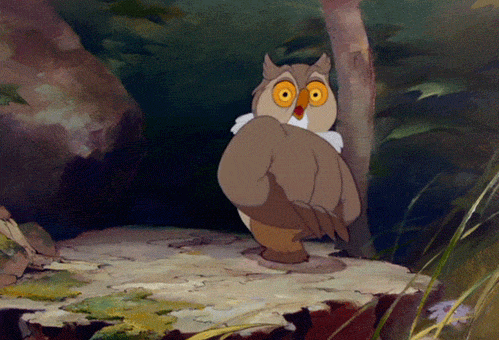DAOs - why do we need to know about them?
DAOs are an important part of the crypto world. What impact DAOs create?
Coo! It’s me, Crypto Owl. The weekend is going to the end, but don’t be sad about it - I’m here to cheer you up with some crypto knowledge.
For Today’s Menu:
🕛Estimated reading time: 3 minutes & 10 seconds
🍛 CURRY WITH RICE: DAOs - everything you need to know about it
🍠 HOME-MADE SWEET POTATO CHIPS: Newsletters of this week
DAO’s - EVERYTHING YOU NEED TO KNOW ABOUT IT
Yesterday I’ve talked about token-gated communities. DAOs are very similar to it. That’s why I’ve decided to dedicate this weekend to fellow knowledge seekers.
So, what is the story of DAOs?
If you’re not familiar with the “DAO” abbreviation - it means Decentralized Autonomous Organization.
First DAO was created back in 2016 and the idea behind was quite simple. As you know, cryptocurrencies are decentralized. And there are no governmental organizations (or other institutions) to control the transaction processes; contrary, there are a huge number of networks, and computers (or, nodes) that share the responsibility of security and smoothness of operations.
So, a group of developers under the name “Slock.it.” felt inspired by this decentralized cryptosystem and decided to create DAO. The organization was based on open-source code, without typical management, and without a particular nation-state.
DAO was meant to operate as a venture capital fund for the crypto and decentralized space. Developers believed that they can create a beneficial and user-friendly environment for investors, so they could send money anywhere in the world. Anonymously. And, DAO had their own specific token that allowed consumers to vote and make other decisions about the organization (you see the similarity between DAOs and Token-gated communities right now?).
Why DAOs are important?
They help communities to get better, more efficient coordination by detaching from entities like various corporations and their control.
Communities are made of various people - from different geographical, and political backgrounds - so sometimes it gets challenging to bring such people together, even if they want to. And that’s the problem for communities based on nation-states or centralized organizations.
This problem can be solved by DAOs. They’re providing groups to align interests and organize to reach shared goals.
Owl’s favorite examples of DAOs
Since 2016, DAOs have evolved a lot, producing different purposes and goals. And these are some examples I want to share with you:
Investment DAOs:
Her House - a DAO that invests in women and non-binary builders' education;
Seed Club - DAO that builds and invests in communities;
The LAO - DAO that supports Ethereum builders and the blockchain ecosystem.
Research DAOs:
VitaDAO - DAO for researching, commercializing, and financing longevity research;
ReasearchHub - DAO that accelerates the pace and progress of science;
ScribeDAO - a learn-to-earn DAO.
Media DAOs:
Forefront - DAO for various content insights;
Rect - DAO for investigative journalism and creative commentary;
SongADAO - DAO for supporting a singer named Jonathan that creates a new song every day (for more than 13 years!).
Service DAOs:
MetaFactory - decentralized culture factory building the open metaverse;
LexDAO - professionals learning about smart contracts;
Raid Guild - a decentralized collective of WEB3 product developers.
Social DAOs:
Developer DAO - DAO for WEB3 builders’ education;
Meta Gamma Delta - DAO that supports women-led projects;
FWB - DAO as cultural membership powered by WEB3 artists, operators, and thinkers.
The bad side of DAOs
Or, in other words, risks that DAOs meet.
Hacks and rug pulls - I think this is the most serious problem. Criticism of DAOs lacking security is not the new thing. Back in June 2016, hackers stole up to 3.6 million ETH (at that time it was worth around $50 million dollars). An opinion of DAOs vulnerability started to emerge around the community.
Most DAOs are forkable. Still, some may try to capture value beyond the utility. This can ruin the host DAO and trigger forks.
Some people speculate that DAOs’ smart contracts can be not fully tested or audited. Which makes them vulnerable and easier to hack.
On top of that, DAOs have some limitations:
As you know, every DAO has a group of developers. And these developers can become major investors, meaning - they can gain higher voting power. What if they start to make unreasonable decisions? The whole community could suffer and shift to personal agenda.
DAOs still lacking define rules and regulations for taxation and management.
Owl predicts the future for DAOs
Venture capital (VP) backed protocols will be transformed into DAO-native protocols. That would bring more value to the consumers;
It’s possible that NFT DAOs will get global recognition. I mean, all the hype around NFTs proves my point.
DAOs can change the perspective of democracy as we know it. This could become direct democracy, when you can delegate vote for yourself. For example, if you support reproductive rights;
DAOs ability to help support social problems will become more common;
DAOs will use treasuries to promote themselves.
What do you think? Could at least one statement be possible?
Owl’s takeaway: for me personally DAOs seem like an innovative and progressive thing. It is definitely better than traditional communities where members depend on “government” actions. I believe that DAOs will emerge in the future. Wouldn’t that be great?
HOME-MADE SWEET POTATO CHIPS
Crypto Owl’s newsletters in case you’ve missed them this week:
APPLE PIE
💜Did you like this newsletter ?💜
With your feedback, we can improve it. Click on a link to vote:
Disclaimer: This newsletter is strictly educational. None of this information is intended to be financial advice. Always do your own research and act responsibly with your profits.





